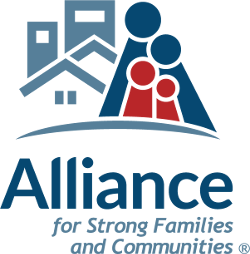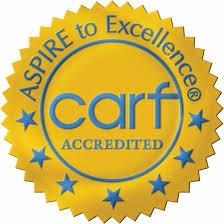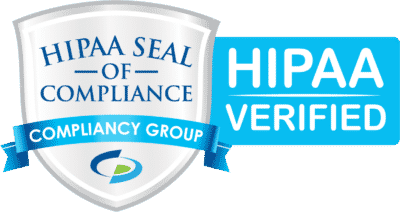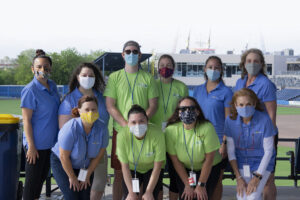Table of Contents
Become a Foster Parent
If you’ve ever felt the pull to make a meaningful difference in a child’s life, foster care might be calling your name. Virginia, like many states, is home to thousands of children in foster care who urgently need safe, stable, and loving homes. These children aren’t looking for perfection—they’re looking for someone who cares. Becoming a foster parent is a courageous step, and while it comes with responsibilities, the rewards can be life-changing. Whether you’re just starting to explore the idea or actively searching for guidance, this comprehensive guide is here to walk you through each step of the journey. From eligibility requirements and agency options to training, legal responsibilities, and financial support, we’ll cover everything you need to know. If you’ve been wondering how to become a foster parent in Virginia, this guide will give you the clarity, confidence, and encouragement you need to take the first step. This guide walks you through everything you need to know—from eligibility requirements and training to timelines, legal rights, and even the financial support you can expect. Whether you’re new to the idea or already halfway through your research, this complete guide will help you take confident steps forward.
Why Consider Becoming a Foster Parent?
Before diving into the nuts and bolts of how to become a foster parent, let’s talk about why people do it. There are over 5,000 children in Virginia’s foster care system at any given time. These kids are in care through no fault of their own—they’ve experienced neglect, abuse, or situations where their biological parents simply can’t provide a safe environment. Foster parents offer them a temporary (sometimes permanent) home, stability, and care during a really tough time. It’s not just about giving; it’s about growing, too. Taking and completing this journey of how to become a foster parent teaches you patience, empathy, and resilience. Many people say it’s one of the most transformative things they’ve ever done. If you’ve got space in your home and in your heart, becoming a foster parent is one of the most impactful things you can do.

Step-by-Step: How to Become a Foster Parent in Virginia
The process can take 4 to 6 months on average, depending on how quickly you complete the steps. Let’s break it down. 1. Make Sure You’re Eligible The Virginia Department of Social Services (VDSS) sets the requirements for foster parents. Here’s what they’re looking for:
- Be at least 18 years old (some agencies prefer 21+)
- Have a stable source of income
- Pass background checks (criminal and child protective services)
- Be physically and mentally capable of caring for a child
- Have enough living space (a child must have their own bed)
- Complete pre-service training
- Live in Virginia
You can be single, married, or partnered. You don’t have to own a home—you can rent an apartment and still qualify. What matters most is your ability to provide a safe, nurturing, and supportive environment.

2. Choose a Foster Care Agency You can foster through:
- Your local Department of Social Services (DSS)
- A licensed private foster care agency (some specialize in therapeutic foster care)
Both options follow the same basic state regulations, but private agencies might offer more personalized support. Reach out to a few agencies and ask questions like:
- What’s your average time to placement?
- Do you provide support after hours?
- What types of children do you place most often?
This decision matters, so take your time and find an agency that aligns with your values and availability. 3. Attend an Orientation Most agencies offer free info sessions where you’ll learn about the foster care system, types of placements (emergency, respite, short-term, long-term), and exactly how to become a foster parent with their agency. It’s your chance to ask all the “what-ifs.” Orientation sessions may be virtual or in-person depending on the agency. They often include current or former foster parents sharing their experiences, which can be incredibly insightful. 4. Complete the Application Once you’ve chosen an agency, you’ll fill out a formal application. It will ask about your:
- Family background
- Employment and finances
- Experience with children
- Motivations for fostering
Be honest—agencies want to make good matches, not judge your history. The more transparent you are, the better the match for you and the child. 5. Attend Foster Parent Training (Pre-Service Training) In Virginia, foster parents are required to complete PRIDE (Parent Resources for Information, Development, and Education) training—usually 27 hours long. Some private agencies offer additional training if you’re interested in caring for children with higher needs. Training covers:
- Trauma-informed care
- Behavioral support strategies
- Attachment and child development
- Navigating the child welfare system
This is a crucial part of learning how to become a foster parent, so come with an open mind and a notebook. You’ll also learn about the legal and emotional complexities of fostering, and what kinds of support are available to you. 6. Undergo a Home Study The home study is detailed, but don’t stress—it’s not about perfection. A caseworker will:
- Visit your home multiple times
- Interview all household members
- Assess safety standards (smoke detectors, locks, cleanliness, etc.)
- Review your financial stability and medical history
They’ll write a comprehensive report summarizing your readiness to foster. This is required by Virginia law. If there are minor things to fix, like a broken stair rail or outdated fire extinguisher, you’ll usually be given time to make those changes. 7. Background Checks Everyone in the household 18 and older must pass:
- A criminal background check (including fingerprinting)
- A child protective services check
- DMV driving record check (if you’ll be transporting children)
Agencies are usually understanding of minor issues from the distant past, but certain convictions (like child abuse or violent crimes) are disqualifying. 8. Get Approved and Wait for Placement Once you’re approved, your agency will begin matching you with children in need. This could happen within days or take several months, depending on your preferences and the needs in your area. You can specify age ranges, number of children, gender preferences, and whether you’re open to siblings, teens, or medically fragile children. This is all part of how to become a foster parent who is confident and prepared.

Financial Support for Foster Parents in Virginia
One big question in the process of how to become a foster parent is whether you’ll be financially supported—and the answer is yes.
Monthly Stipend
As of 2025, base monthly rates (per child) range from:
- Ages 0–4: $521
- Ages 5–12: $651
- Ages 13+: $772
Rates are higher for children with special needs.
Medical Coverage
Children in foster care are covered by Virginia Medicaid, so you’re not responsible for their medical, dental, or mental health care expenses.
Reimbursements & Support
- Clothing allowances
- Mileage reimbursement for court or doctor visits
- Daycare support (for working foster parents)
- Respite care (short breaks for foster parents)
While fostering isn’t meant to be income, the support is there to ensure the child’s needs are met without causing financial strain. Understanding these financial logistics is essential to planning how to become a foster parent sustainably.
Legal Rights and Responsibilities
As a foster parent in Virginia, you’re a legal custodian—not a legal guardian. That means:
- The child’s case is still managed by DSS and the court
- You’ll be part of regular team meetings with social workers, therapists, and legal reps
- You’ll attend court hearings (with support)
- You’re expected to support reunification with birth parents when possible
It’s not uncommon to form deep bonds, and some foster parents go on to adopt. In fact, many adoptions in Virginia happen through foster care. If a child becomes legally free for adoption, foster parents are often the first considered.
Common Types of Foster Placements
Understanding what kind of placement fits your lifestyle and goals is part of how to become a foster parent. Here are the most common types:
- Short-Term/Emergency Care – Days to weeks
- Long-Term Care – Months to years
- Respite Care – Temporary relief for other foster parents
- Therapeutic Foster Care – For children with emotional or behavioral needs (requires extra training)
Agencies work with you to determine the best fit for your home and skills. Being honest about your capacity helps avoid burnout and ensures a good match.
Frequently Asked Questions (FAQs)
- How long does the process take?
- Usually 4 to 6 months, depending on how quickly you complete training, home visits, and paperwork.
- Can single people become foster parents in Virginia?
- Yes! You don’t need to be married to foster.
- Can I adopt through foster care?
- Yes. While the primary goal is reunification, about 40% of foster children in Virginia become eligible for adoption. Many foster parents adopt the children in their care.
- Do I need parenting experience?
- No. You’ll receive training and ongoing support to help you succeed.
- Can I choose the age range of children I foster?
- Yes. You can specify preferences including age, gender, and number of children.
- Will I be able to work full-time while fostering?
- Yes. Many foster parents work full-time. Agencies often help coordinate childcare and provide assistance if needed.
Final Thoughts on How to Become a Foster Parent
Learning how to become a foster parent in Virginia isn’t just about filling out forms—it’s about changing lives, including your own. It’s about stepping up for a child during one of the most uncertain times in their life and offering them something many of us take for granted: safety, love, and a chance to just be a kid. Every child deserves a champion, and becoming a foster parent puts you in the position to be exactly that. Yes, there’s paperwork. Yes, there are home visits, training sessions, and moments of doubt. But there’s also growth, connection, and profound meaning. Foster care isn’t always easy—but it is worth it. You may be the first stable adult a child has had in years. You may be their first experience of what love looks like when it’s consistent and safe. And the beauty of it? You’re not doing this alone. Virginia’s foster care system is designed to support you every step of the way, from your first orientation meeting to court hearings and daily questions. You’ll have access to caseworkers, support groups, training, and financial resources to help you focus on what matters most: showing up for the child in your care. So if you’ve been asking yourself how to become a foster parent, know that the answers are within reach—and so is the opportunity to make a real, lasting difference. Take the first step, trust the process, and lean into the support offered. The journey ahead will challenge you, yes—but it will also reward you in ways that are hard to put into words. Sometimes, the biggest impact comes from simply saying, “Yes, I’m here.” That yes could change a child’s life—and yours.
Thanks to your contributions, we are able to collaborate with children, families, and communities to enhance lives and outcomes through prevention, intervention, and support services, especially within foster care organizations. If you want to help us continue our work, please consider donating by clicking the button below.














